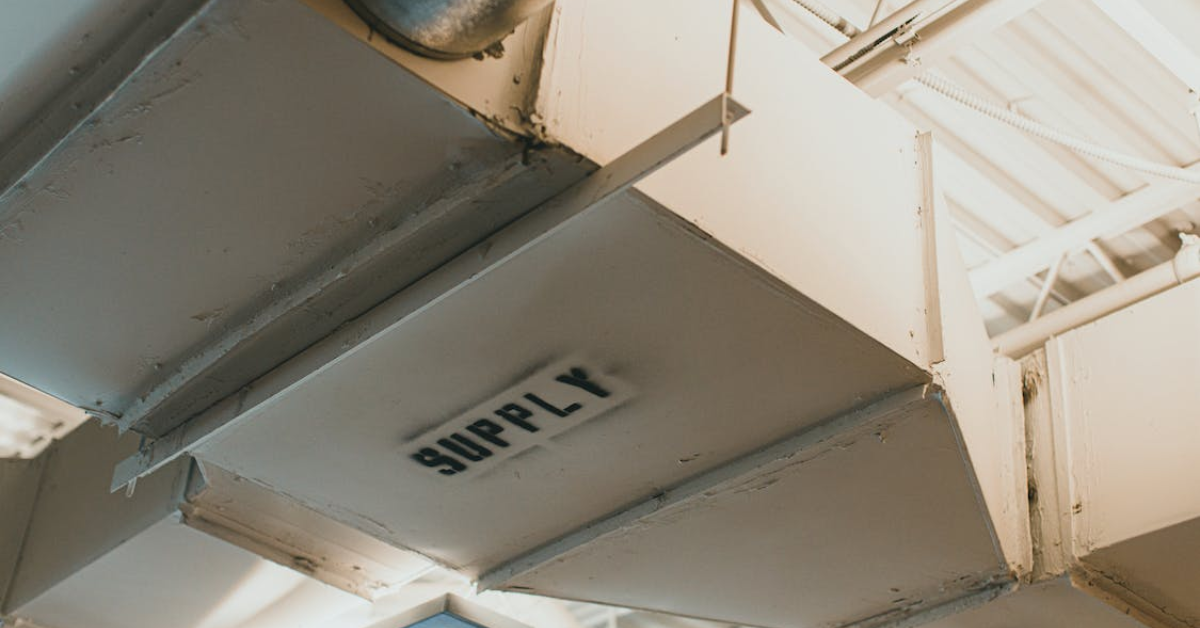Your heating and cooling system works hard every day to provide the air circulation necessary for comfort, health, and efficiency in your home. While the HVAC equipment itself requires maintenance, the network of ducts that deliver conditioned air throughout your property often goes unnoticed when it comes to preventing damage and ensuring optimal performance.
This article focuses on discussing the problems that can occur if the ducts are not maintained properly as well as how to take care of them.
Problems That Can Happen Due To Unclean Air Ducts
Allergens, Mold, And Dust Buildup
Over time, dust, pollen, pet dander, mold, and other allergens can collect inside your heating and cooling air ducts. This buildup restricts airflow and prevents your HVAC system from fully circulating the air in your home. Poor air circulation means some rooms get too hot or too cold, energy usage increases, and allergy symptoms worsen.
Unhealthy Air Quality
A clogged duct system means the air in your home will contain high amounts of allergens, mold, bacteria, and other pollutants. Breathing this unhealthy air can lead to long-term respiratory issues like asthma or allergic rhinitis. People with weakened immune systems are at even higher risk of air-borne disease. Musty smells in the ducts can also seep into the air you breathe at home.
Higher Energy Bills
With restricted airflow, your heating and cooling system has to work harder to maintain a comfortable temperature. This results in significantly higher energy usage and utility bills each month. Properly cleaning and sealing your ducts helps ensure maximum airflow efficiency for lower costs and environmental impact.
Fire Hazards
In some cases, a buildup of dust and debris in air ducts can become highly flammable. When particles come in contact with electrical components like motors, compressors, or wires, it only takes a small spark to start a duct fire potentially. Fires that start in air ducts can spread quickly and be dangerous to contain, posing risks to people, property, and surrounding structures.
Maintenance And Repair Costs
Unchecked duct buildup leads to accelerated wear and damage over time. Ducts become weak, develop leaks or tears, and motors and compressors work harder, shortening their lifespan. This results in costly repairs, replacements, or even complete system rebuilds. Preventative air duct cleaning services help avoid large emergency service fees and ensure your HVAC equipment remains in good, safe working condition for longer.
Tips To Prevent Air Duct Problems
Call Professional Duct Cleaning Service Every 2-5 Years
Air ducts should be professionally deep cleaned every 2-5 years according to recommendations. Professional cleaning services vacuum ducts, replace filters, and test air quality to prevent damage from built-up pollutants.
Clogged ducts reduce airflow, increase operating costs, lower efficiency and pose safety risks. Professional duct cleaning helps avoid these costly issues by thoroughly removing dust, allergens, mold, pet dander, and other debris accumulation.
Choose High-Quality HVAC Filters
Choose pleated, washable filters that are properly sized for your unit filter and replace them every 1-3 months as directed.
Clogged, dirty filters reduce airflow through the system, leading to faster duct buildup. High-efficiency filters, including HEPA filters, can provide extra filtration for those with respiratory sensitivities or allergies.
Seal Air Ducts During Any Construction
Before remodeling, sanding, painting, or other projects, seal and cover all air vents, returns, grilles, and other openings to prevent construction particles from entering ducts.
Sealing openings help ensure no re-cleaning will be needed after the work is completed. Even a small amount of extra debris clogging ducts can be costly and difficult to remove fully.
Control Indoor Humidity
Excess moisture in the home allows mold, mildew, and bacteria to grow in air ducts and the HVAC system. Run an exhaust fan when cooking or bathing and keep humidity below 50% ideally using a dehumidifier if needed.
Lowering humidity provides a healthier, more efficient environment and prevents costly damage. High humidity is dangerous for those with respiratory issues or weakened immune systems.
Vacuum, Dust, And Wipe Surfaces Regularly
Frequently vacuuming carpets, rugs, and upholstery and dusting/wiping hard surfaces helps ensure airborne pollutants have limited buildup in the home. Pollutants like allergens, pet dander, and dust continuously circulate through the HVAC system.
Regular source control and filtration are the best ways to prevent excessive amounts from accumulating in air ducts which can lead to costly issues over time.
 Skip to content
Skip to content 